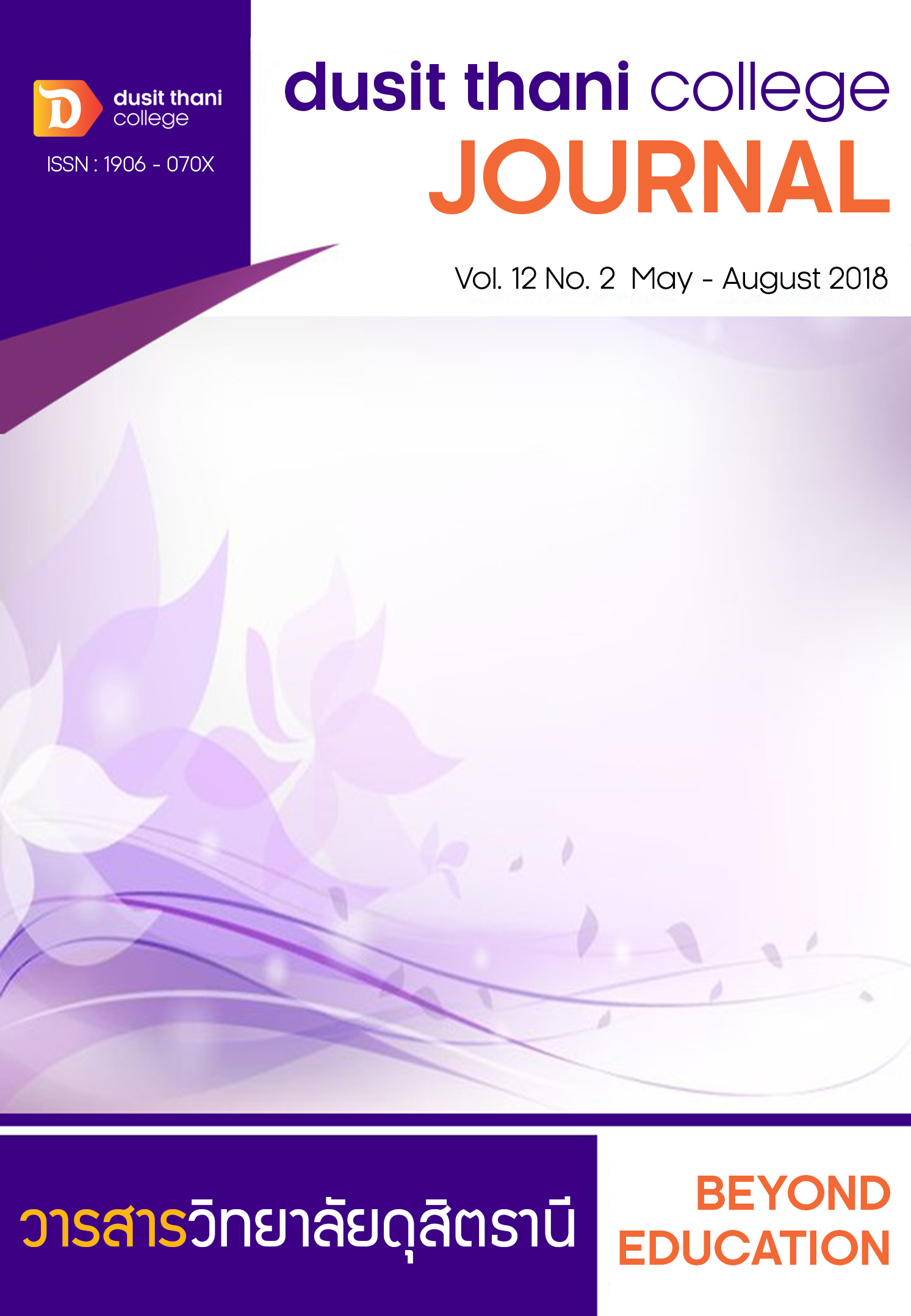The Characteristics of the Graduates in Accordance with the Development of Thailand According to the “Thailand 4.0” Economic Model
Main Article Content
Abstract
According to the new country development Policy of Thailand 4.0 which is focused on transforming the traditional economy into an innovation-driven economy. By driving the industry to technology driven and creative. And the transition from the manufacturing sector to the service sector. For these reasons, graduates play an important role in Thailand 4.0 model transition. As the important factor in term of human capital dimension, they should have characteristics in line with the keys of country development. Based on studies from a wide range of experts and resources, Characteristics of graduates those are qualified must have these skills; analytical thinking, creativity, Productivity, social responsible, team work, pride in Thailand, knowledge of technology and digital, lifelong learning and entrepreneurship. There is a difference from the focus on the development of Thai graduates have been identified. If higher education institutions focus on the characteristics of graduates who are consistent with the country's development in line with the "Thailand 4.0" model, they will be able to carry out their mission of producing quality graduates. If education institution will be able to emphasize more on the characteristics of the graduates that are consistent with the country's development key according to the "Thailand 4.0" model, which is also in line with the current needs of the country so that graduates (human capital) will be able to develop Thailand into the innovative country, create high-tech products and provide good service sectors. These will benefit Thailand to get out of the middle income trap to finally reach the goal of the new country development model of Thailand 4.0.
Article Details
Article Screening Policy
- All research and academic articles to be published must be considered and screened by three peer reviews in the relevant field / article.
- All articles, texts, illustrations and tables published in the journal are the personal opinions of the authors. Editors don't always have to agree. And no responsibility whatsoever is the sole responsibility of the author.
- The articles to be published must never be published. Where did you first publish? And not in the consideration of other journals If the audit found that there has been a duplicate publication It is the sole responsibility of the author.
- Any article that the reader sees as being plagiarized or impersonated without reference. Or mislead the work of the author Please let the journal editor know it will be your greatest blessing.
References
Division of Research Administration and Education and Educational Quality Assurance. Thailand 4.0: Thailand's Economic Model toward Thailand 4.0: Prosperity, Security, Sustainability. [Online]. Available form: https://digital.forest.ku.ac.th/TFCC/TCERN2017/PW/Thailand_40_PM.pdf
Kachintorn, D. (2016). Universities to Play an Important Role in Moving Thailand 4.0. [Online]. Available form: https://www.thairath.co.th/content/697458
Kummun, S. (2017) The Twelve National Economic and Social Development Plan with Thailand 4.0. [Online]. Available form: https://www.eng.rmuti.ac.th/2015/images/flie_download/strategynationalp4_0.pdf
Lozano, R. et al. (2017). Connecting Competences and Pedagogical Approaches for Sustainable Development in Higher Education: A Literature Review and Framework Proposal. [Online]. Available form: https://www.mdpi.com:8080/2071-1050/9/10/1889/pdf.
Maesincee, S. (2016). Decode The Thailand 4.0 Buildup New Economic Pull the Country Out of the Middle-income Trap. [Online]. Available form: https://www.thairath.co.th/content/613903
Maesincee, S. (2016). Thailand 4.0 in SuwitMaesincee hand. [Online]. Available form: https://www.matichon.co.th/news/405820
OECD. (2018). Preparing our youth for an inclusive and sustainable world. Paris: OECD.
Sinlarat, P. (2016). Thailand Education 4.0 more than Education. [Online]. Available form: https://www.dpu.ac.th/ces/upload/content/files/
World Bank. (2012). Higher education contributes to the development of skills and research to drive growth The East Asian Economy. [Online]. Available from: https://documents.worldbank.org/curated/en/842001468025505039/pdf/649520THAI0PUB0ox370053B0HighEdTHAI.pdf
World Economic Forum. (2016). The 10 Skills You Need to Thrive in the Fourth Industrial Revolution. [Online]. Available from: https://www.weforum.org/agenda/2016/01/the-10-skills-you-need-to-thrive-in-the-fourth-industrial-revolution/


